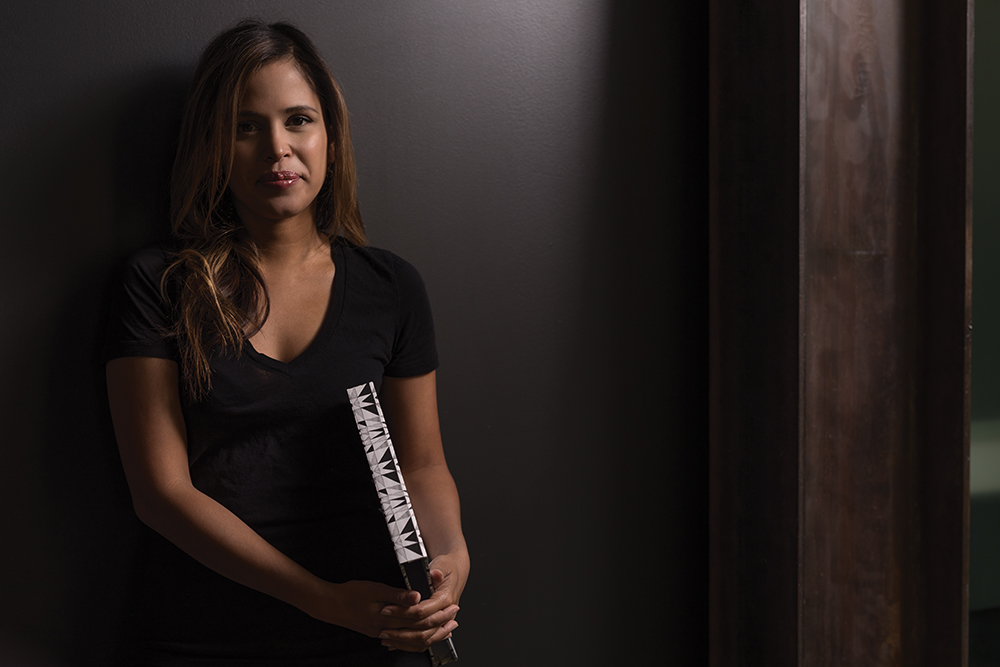Entrepreneur of 2017: Taking interior design online
Lee Mayer's Havenly pairs interior decorators with consumers
Gigi Sukin //May 9, 2017//


Entrepreneur of 2017: Taking interior design online
Lee Mayer's Havenly pairs interior decorators with consumers
Gigi Sukin //May 9, 2017//

Lee Mayer had a space and nothing to put in it.
Rather than rummaging through retailers, scrupulously studying HGTV, camping out on Pinterest or hiring a high-price decorator, she believed there could be a solution that transformed home design through technology.
So in late March 2014, the Harvard MBA ditched her profitable corporate consulting career and, alongside her little sister, Emily Motayed, set out on a mission. Though neither had interior design nor tech backgrounds, the sisters were theoretical customers of their own business, Havenly.
“Overwhelmingly, we did this out of personal need,” Mayer says. “There was definitely an opening in the market.”
The idea was to build an online home design service, pairing interior decorators with consumers who want to spruce up their homes or offices – from a few accents to a complete overhaul.
Self-taught, Mayer built the original prototype.
“I quickly realized that was not my strong suit,” she recalls. “So we brought on our first paid employee, who was a developer.”
The consumer business centers on a smart algorithm that understands, through a survey, what a customer wants. It then plays matchmaker, putting a designer on the job. Clients can purchase their furniture and flourishes through the site’s shopping cart and the service tops out at $199 per room.
“Havenly has a fairly simple revenue model,” COO Jessie Dixon says. “We make money from design services and from ecommerce sales. We don’t take on inventory – we drop-ship everything we source for clients directly from the vendor. This provides a lot of flexibility as we scale rapidly.”
Havenly’s core value is to “deliver on the delight factor,” nimbly iterating to cater to consumer desires. Core demographics are women and couples moving a step beyond a rental apartment, and customers spend an average of $3,000 to $5,000.
“I always say thank goodness we didn’t know what we didn’t know,” Mayer says. “I’ve heard it’s a little bit like childbirth,” admitting she was naïve in the beginning.
Mayer recalls her first furniture convention in 2014 and being laughed at by institutional players in the industry.
“I came from a big company background and I’m used to being treated with some modicum of respect. I thought, ‘Why did I strike out on my own?’”
After emerging from the first cohort of MergeLane, a Boulder-based incubator directed at women in technology, the company hit its stride.
“They’ve been growing quickly in a market that is really starting to explode,” says Jason Mendelson, co-founder and managing director at Foundry Group.
Havenly is among a growing niche of online design services competing for clients and capital; in 2014, the sub-sector raised $529.5 million, according to Pitchbook.
Most of Havenly’s initial growth was organic, propelled by the company’s referral program and word-of-mouth.
In the three years since launch, Havenly has added a number of features, from signups to surveys, a “design quickie” capability and a new registry functionality this spring.
To date, the company has landed $13.8 million in investment, including a round of funding led by Binary Capital, Foundry Group and Chicago Ventures.
Mayer says her company’s edge is over-delivering on product and service. The team has gone from two to 40 people, roughly 70 percent of whom are female.
Mayer and Motayed come from an Indian family, which, according to Mayer, means growing up to become either a doctor or an engineer. Thankfully, their father blazed the trail as an entrepreneur himself.
She admits the celebrity status assigned to entrepreneurs comes with its fair share of strain.
“I think there’s a dark side to entrepreneurship,” Mayer says, noting she “lost a marriage” in the business-building process, and stressing the full-time commitment to the company. “You devote your time to the business – not your kids, not your family, not your friends, not to lead the glamour of the startup life. It’s a lot of work, and that message doesn’t carry out as much as it should.”
Working with mentors and talking through challenges with subject-matter experts has been key to Havenly’s success. One such advisor, Susan Feldman, served as co-founder of One Kings Lane – a designer décor business which was acquired by Bed, Bath & Beyond last year.
Back in 2014, Feldman suggested that Havenly keep it simple.
“I think they have built a service that is really easy to understand,” she says. “I think there is a big demand. Today, your home is another expression of yourself, but decorating can be overwhelming. Havenly can help so many people figure this out.”
COO Dixon, a co-founder, joined the Havenly effort as an advisor, having met Mayer through the TechStars community.
“To be a successful entrepreneur, you need to look at a business problem that is perhaps undefined and ambiguous and be comfortable breaking the challenge apart and trying new things to solve the problem – quickly. A successful entrepreneur isn’t afraid to move quickly, iterate constantly and leverage their network to shortcut the learning process.”
Dixon says, upon meeting Mayer, her passion was infectious.
“Lee [Mayer] is a fiercely smart, passionate leader who has amazing instinct when it comes to what customers want. She is very well-rounded across all aspects of the business and is capable of jumping in on product, ops and marketing discussions, always armed with analytical insights from the business,” Dixon says.

COLORADO COMMITMENT AND CYNICSM
Mayer – a loyal East Coast native – admits, “I moved [to Colorado] kicking and screaming,” and her criticisms of the business environment have gotten her “booed off stage.”
Her top two complaints: Capital and talent, a shortage of both.
To the first, Mendelson says the same problem persists across Foundry’s portfolio nationwide. “Colorado has always imported the majority of its VC funding and that will continue, but more and more VCs are starting to look at Colorado as a great place to invest.”
Still, Mayer shares that California investors don’t think Coloradans work hard enough.
As for talent, “I’m not really confident that we get enough of the types of people that are really going to lift a company off the ground,” Mayer fears the mountains and sunshine compete for attention.
In agreement, Mendelson, adds:
Mayer says Havenly has been fortunate to attract employees as an early-stage consumer company with few competitors in its vertical. It also helps having a strong network on the coasts and funding from “the right people.”
Like the rooms Havenly designs, Mayer is committed to creating the Colorado of her dreams, recently accepting a board seat with the Downtown Denver Partnership.
“We saw this great opportunity to bring her leadership and passion to building a great city,” says Kate Barton, vice president, executive office and special projects, Downtown Denver Partnership.
LOOKING AHEAD
Though the company is not yet profitable, Havenly has grown to be one of the largest online interior design services in the country.
“Our biggest challenge is getting the word out about our service and brand and that can be costly to startups,” Dixon says.
Though it may be too early to tell what an exit strategy looks like for Havenly, Mayer says, “It may be Pollyanna-esque to believe that if we build a company with a lasting brand and tremendous business fundamentals, we’ll have plenty of options.”
As Mayer’s public persona grows more recognizable and her founder’s story more familiar, the goal is to gain trust with consumers.
“Lee needs to continue to do what she’s doing,” says Dixon, including, “inspire the team to learn from client behavior and feedback, and the data we’ve collected, move quickly to innovate on ideas and continue to exceed goals,”
Fellow female founder Feldman gives her seal of approval: “Lee definitely has what it takes to make it.”
(This is an extended version of the print story in the May-June issue.)



























